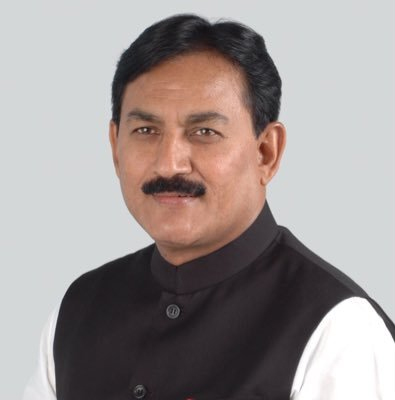 Early Times Report Early Times Report
Jammu, Jan 15: During his first visit to Jammu following the Congress party’s unprecedented defeat in the Assembly elections, All India Congress Committee (AICC) General Secretary in charge of Jammu and Kashmir Congress, Baratsinh Solanki, faced intense criticism from party leaders. The backlash centered around allegations of mismanagement and disarray during the election campaign, which many attributed to the party’s dismal performance.
According to highly placed sources within the Congress, a meeting held three days ago in Jammu turned into a platform for party leaders to express their grievances against Solanki, who was responsible for overseeing the selection of candidates and the overall campaign strategy.
“A former minister and ex-MLA directly blamed Solanki for the party’s humiliating defeat, calling it a historic and shameless loss,” a source revealed.
“Without mincing words, several leaders accused him of favoritism, claiming that tickets were sold and deserving candidates were sidelined during the selection process.”
These allegations underscored deep discontent within the party ranks. Sources indicated that a number of senior leaders pointed out glaring shortcomings in how the campaign was managed, particularly the lack of engagement by national leaders deputed to oversee the elections.
“Most of the national leaders sent by the party high command to manage the election campaign restricted themselves to their hotels, indulging in protocol rather than actively participating in fieldwork,” a senior p During his first visit to Jammu after Assembly polls results were declared Solanki faced intense criticism from party leaders.
The backlash centered around allegations of mismanagement and disarray during the election campaign.
A former minister and ex-MLA directly blamed Solanki for the party’s humiliating defeat, calling it a "shameless loss."
Without mincing words, several leaders accused him of favoritism, claiming that deserving candidates were sidelined.
“Instead of taking charge and monitoring the campaign on the ground, these leaders remained detached from the process. They neither visited the constituencies nor made any significant effort to connect with the contesting candidates.”
The criticism also extended to the overall strategy, with leaders lamenting the absence of a cohesive plan to counter the narratives of rival political parties. “Our campaign lacked direction. The failure to mobilize grassroots workers and address local issues alienated the voters,” another leader remarked.
Solanki, who was expected to use the visit to assess the reasons behind the debacle and chart a course for rebuilding the party’s fortunes, found himself defending his leadership instead. The meeting underscored growing frustration among party members, who view the Assembly election results as a wake-up call for the Congress.
This is not the first time Solanki has faced criticism. Observers note that internal dissatisfaction over his leadership style had been brewing even before the elections.
However, the scale of the defeat has brought these issues to the forefront, with party leaders demanding accountability and significant changes in strategy.
As the Congress grapples with its worst electoral performance in the region, the path ahead appears fraught with challenges. Rebuilding trust among the cadre, addressing grievances, and formulating a voter-centric approach will be crucial if the party is to regain its footing in Jammu and Kashmir’s political landscape. |
